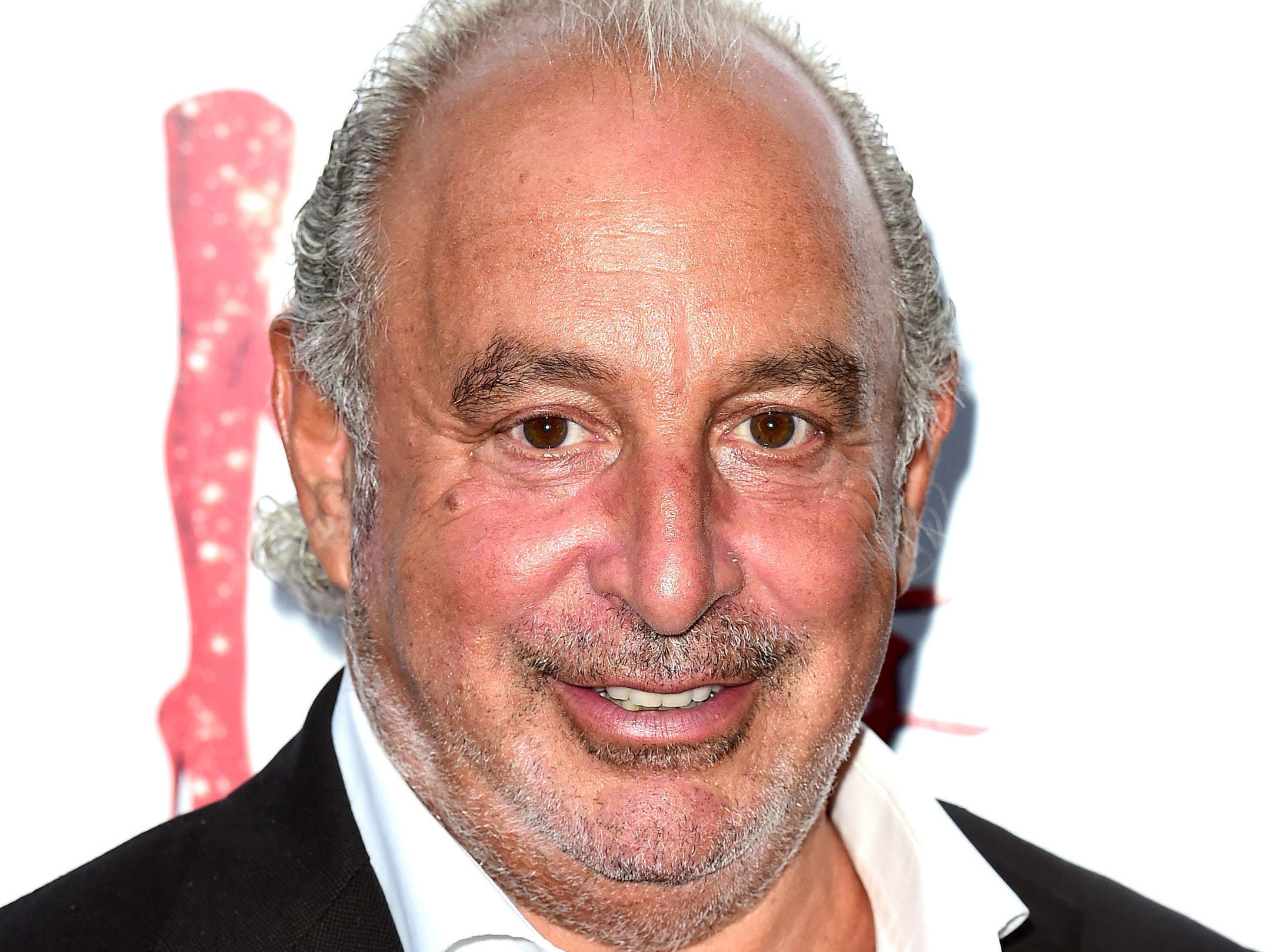
Sir Philip Green’s legal action against the Daily Telegraph, which sought to gag the paper from revealing details of alleged sexual and racial abuse against him, has been formally brought to an end by a High Court judge.
Green’s business empire Arcadia announced in a statement last week that he was dropping the case because it was “pointless” after he was named in Parliament as the businessman behind an injunction against the newspaper.
In a ruling today, Mr Justice Warby granted the Topshop owner permission to discontinue the proceedings, leaving him with a reported £3m legal bill.
The Telegraph has said it will now report details of the misconduct claims made against the billionaire retail tycoon and an alleged cover-up by Arcadia in the coming days.
Green has denied any allegations of unlawful sexual or racist behaviour.
In a statement, Telegraph editor Chris Evans said: “We are delighted the injunction has been lifted but our campaign goes on. And now, we look to the Government to act.
“In the wake of the Harvey Weinstein affair, we became aware that gagging orders called NDAs [non-disclosure agreements] were being used to cover up allegations of sexual misconduct and racial abuse in the workplace. And that led to our investigation into Sir Philip Green and Arcadia.
“We maintain there is a clear public interest in telling people whether a prospective employer has been accused of sexual misconduct and racial abuse.
“And for all we know, there may be people out there who have been victims of criminal offences at work but who don’t believe they can complain to the police because they’ve signed NDAs.
“The courts, for one reason or another, have not been able to resolve this issue. All those who were subject to NDAs after complaining of sexual misconduct and racial abuse remain subject to NDAs.
“Sir Philip has described the allegations against him as no more than banter. If that’s so, he should release his accusers from their NDAs and allow them to speak freely.
“The most notable achievement of the courts during this process has been to slap an injunction on The Telegraph, which made it even harder for us to disclose allegations which were clearly in the public interest.
“And an injunction is perhaps another kind of non-disclosure agreement. The Prime Minister has already indicated that she is uneasy with the way in which NDAs have been used. We ask her now to do something about it.”
The newspaper has also published “increasingly aggressive and expletive-ridden” phone calls between its journalists and Green, who it said threatened to “bankrupt” the Telegraph if it published allegations he sexually and racially abused staff.
Green told a reporter that Telegraph executives should “grow some balls” and said he would take “pleasure” in personally bankrupting the editor.
Listen to excerpts of the phone calls between Sir Philip Green and The Telegraph in which he threatened to “bankrupt” the newspaper if we printed allegations that he had sexually and racially abused his staff here: https://t.co/oLczhAfqXX pic.twitter.com/NG0rH9wKRQ
— The Telegraph (@Telegraph) February 8, 2019
Lawyers representing the clothing-store mogul and two of his companies previously told the court that going ahead with a trial would have been “worse” than ending the action.
James Price QC said the decision was prompted by Lord Hain’s identification of Sir Philip in the House of Lords in October last year, a day after the Telegraph ran a front-page story saying it was prevented from naming a “mystery businessman”.
An injunction was first sought after Sir Philip and an executive at his Arcadia firm were contacted by a Telegraph journalist in July last year.
The newspaper intended to publish allegations of misconduct made against Sir Philip by five employees who had received substantial payments after settling their claims.
In all five cases, the employees had agreed to keep the details of their complaints confidential under non-disclosure agreements (NDAs).
In August last year, Mr Justice Haddon-Cave in the High Court refused to gag the newspaper, but an appeal was mounted by Sir Philip – then identified in court papers as ABC – and Arcadia.
Court of Appeal judges found in Sit Philip’s favour, temporarily barring the newspaper from identifying the tycoon or revealing “confidential information” relating to the allegations.
Outlining their decision for granting the injunction, Master of the Rolls Sir Terence Etherton, Lord Justice Underhill and Lord Justice Henderson said there was a “real prospect” that publication would cause “substantial and possibly irreversible harm” to the claimants.
Former Cabinet minister Lord Hain said he had been contacted by someone “intimately involved” in the case and felt it was his “duty” to use parliamentary privilege to identify the retail magnate as the businessman behind the injunction against the Telegraph.
Picture: Ian West/PA Wire
Email pged@pressgazette.co.uk to point out mistakes, provide story tips or send in a letter for publication on our "Letters Page" blog
